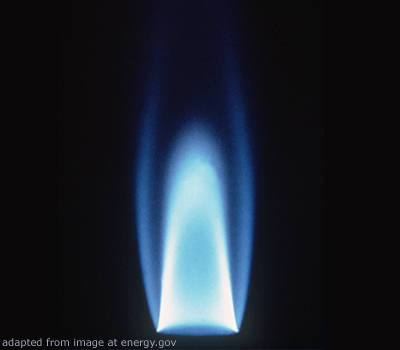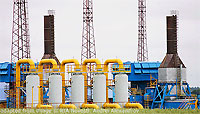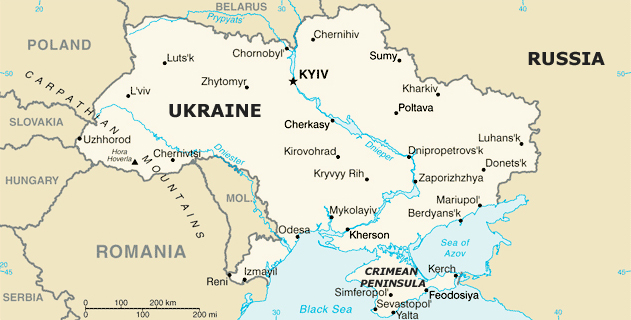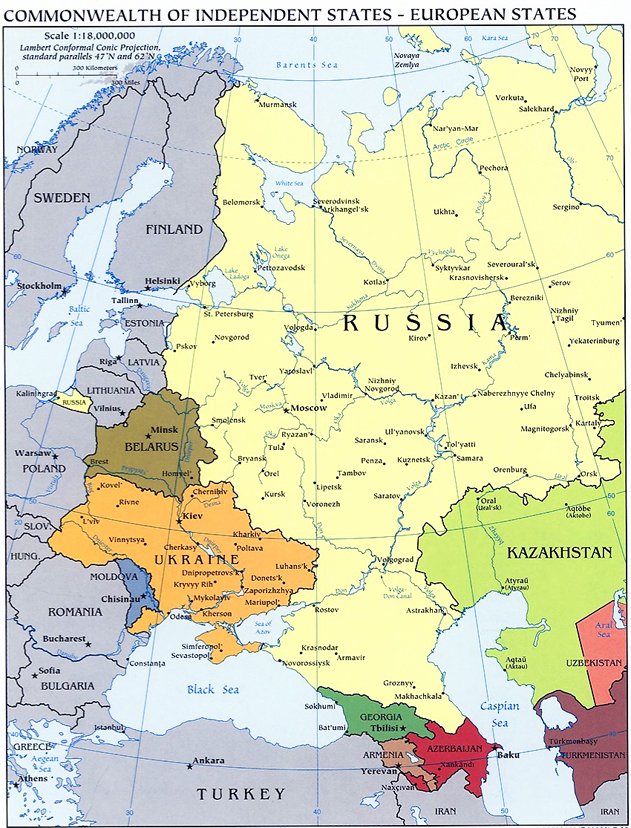Putin approves three-month extension of Ukraine’s gas discount

(Business New Europe – bne.eu – bne IntelliNews – April 1, 2015)
Russian President Vladimir Putin has approved a request by Gazprom to supply discounted natural gas to Ukraine for three more months on March 31, saying the arrangement would be reviewed later as oil prices changed.
Ukraine in the first quarter of 2015 paid $329 per thousand cubic metres for Russian gas under the ‘winter package’ deal, with Kyiv winning a $100 discount per 1,000 cu m until the end of March.
“Let’s do it [extend the discount],” Putin told Prime Minister Dmitry Medvedev at a Kremlin meeting, adding that the volatile oil price to which gas prices are pegged would inevitably change in the coming weeks.
“In three months we’ll have to check what’s going on in the sector and after that make a supplementary decision,” Putin added.
Medvedev played up the discount as a boost to Ukraine amid its current economic dire straits. But some observers dismissed it as a contrived gesture that only reflects falling gas prices in general.
Tim Ash, head of emerging markets research at Standard Bank, said in a note that this did not show “Russian ‘warming’ to the government in Kyiv, rather that Moscow can sell this to its allies in Europe, e.g. the Tsipras government in Greece, as an example of it being reasonable towards Ukraine, when in reality to does not really entail any significant concession”.
According to unofficial reports, the price of Russian gas to non-CIS consumers in Europe is projected by the finance ministry to fall as low as $222.1 per 1,000 cu m in 2015 due to lower oil prices.
Meanwhile, Russia’s RIA news agency quoted Ukrainian Energy Minister Volodymyr Demchyshyn as saying he expected the gas price to be $248 per 1,000 cu m in the second quarter.
Gazprom CEO Aleksei Miller said on March 30 that the company had asked the government to allow an “optimal” three-month extension of the discount “because the spring-summer season is coming, and also because of high gas price volatility on the global market”.
Planned for five months, the discounted rate was set in October last year after talks between Russia, Ukraine and the European Commission. A warm winter since then also reduced Moscow’s leverage through gas prices in its stand-off with the West over Ukraine.
Gas from EU neighbours instead
During trilateral talks in Brussels on March 20, Russia and Ukraine agreed most terms of new deliveries from April 1, including a reset of the take-or-pay rule and payment by Ukraine’s Naftogaz of $3.1bn of previously accumulated debt to Gazprom.
However, Demchyshyn later upset the apple cart by saying Ukraine would stop buying gas from Russia from April 1 because it was cheaper to get it from EU neighbours.
“There is no reason to buy gas at a higher price than the price at which we can buy it from Europe. We will simply stop buying it,” Demchyshyn said.
Disagreements also remain over the sum Ukraine owes Gazprom under an earlier take-or-pay agreement, which is currently being argued in a Stockholm arbitration court. Russia has demanded more than $20bn of penalty fees from Ukraine. The take-or-pay clause was suspended in the winter package but re-established from April 1 at the recent talks in Brussels.
Gazprom hurting
Meanwhile, Gazprom on March 31 reported a 70% slump in 2014 net profit under RAS, to RUB188.9bn from RUB628bn in 2013. Revenues decreased to RUB3.99 trillion from RUB3.93 trillion in 2013. “If no FX adjustments are made to the net income, the reported financials might imply a dividend of RUB2 per share, with translates into a limited dividend yield of 1.5%,” VTB Capital analysts estimated in a note.
Adding to the squeeze, Gazprom had to pay around $1bn (RUR56bn) in compensation to its partners in the cancelled South Stream gas pipeline construction. In December, it bought out the original share in project of Italy’s Eni, France’s EDF and Germany’s Wintershall, the company said.
South Stream was due to run from Russia through the Black Sea to Bulgaria, Serbia, Hungary and Slovenia to Austria. Russia pulled out late last year because of obstacles put in place by Bulgaria and the EU, the 2014 Crimean crisis and the imposition of Western sanctions on Russia.



